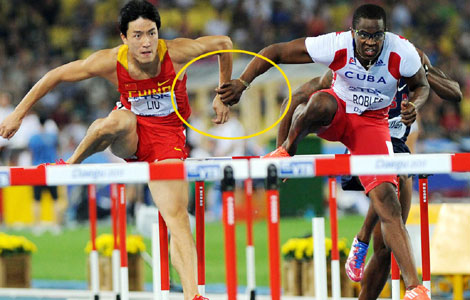New breast cancer gene may help predict risks
Updated: 2011-08-30 13:00
(Agencies)
|
|||||||||||
Aug 30 - Screening for mutations in a gene known as CHEK2 may help determine a woman's odds of breast cancer if the disease runs in her family, according to a Polish study.
Researchers led by Cezary Cybulski of the Pomeranian Medical University in Szczecin estimated that a woman who carries a CHEK2 mutation would have a 34 percent risk of developing breast cancer if her mother or sister had the disease.
US experts, however, cautioned that Polish women might be different than those in the United States and said that the test isn't quite ready for widespread use yet.
Women with a family history of breast or ovarian cancer are already encouraged to get screened for mutations in the BRCA 1 and 2 genes that warn of a heightened tumor risk.
"CHEK2 mutation screening detects a clinically meaningful risk of breast cancer and should be considered in all women with a family history of breast cancer," Cybulski wrote in the Journal of Clinical Oncology.
The Polish researchers tested the genes of nearly 7,500 women with breast cancer who didn't have BRCA 1 mutations and found that 3 percent had a certain type of mutation in the CHEK2 gene. But fewer than one percent without breast cancer harbored such mutations.
Although CHEK2 has been tied to cancer before, it wasn't clear what role cancer in the family played. When the team asked the women whether they had any affected relatives, those whose mother or sister had had breast cancer were at the highest risk.
They estimated that a woman with a CHEK2 mutation has a risk of 20 percent. If she also has a mother or sister with breast cancer, her risk jumps to 34 percent, and to 44 percent if a second-degree relative is also ill.
US experts said the tests were a good first step but said it was still too early to tell women to go out and get screened for the CHEK2 gene.
"This does represent an important breakthrough," said Diana Petitti, of the Arizona State University in Phoenix.
"But this is a field where replication is crucial."
Others said that the most important thing for women with a family history of breast cancer was to talk with their doctor, or a genetic counselor, to find out what options they have, noting that widespread use of the test might not be cost-effective.?
Hot Topics
The European Central Bank (ECB) held a conference call late on Sunday ahead of the market opening, pledging the ECB will step in to buy eurozone bonds with efforts to forestall the euro zone's debt crisis from spreading.
Editor's Picks

|

|

|

|

|

|






